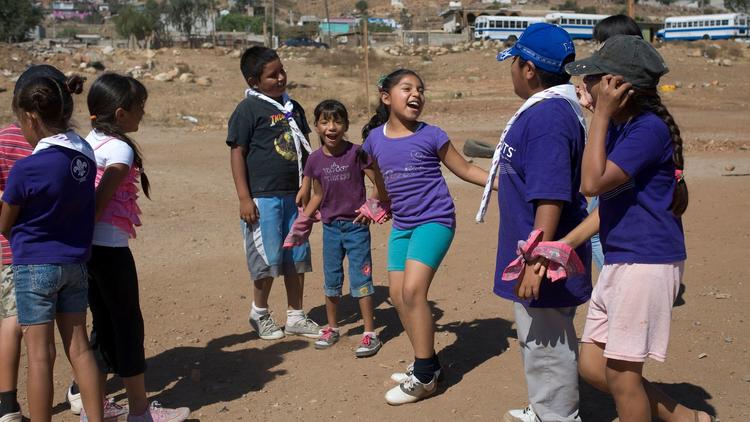mid uncertainty over the future of U.S.-Mexico relations under President Donald Trump, the signing of an agreement Wednesday in Tijuana highlighted the collaboration that has been quietly continuing.
During a ceremony at Tijuana’s Centro Interactivo Ambar, the U.S. Agency for International Development committed to supporting the city’s municipal government with crime-prevention efforts— especially through programs targeting young people living in at-risk neighborhoods.
The head of the agency’s Mexico office, Elizabeth Warfield, and Tijuana Mayor Juan Manuel Gastélum signed the agreement under which the municipal government will receive technical assistance “with the objective of improving citizen safety and the well-being of the Tijuana community.”
A statement from the agency said the aim is to strengthen the capacity “to design implement and evaluate actions in prevention that have proven effective in reducing violence where it is concentrated.”
With the agreement, Tijuana joins eight other Mexican cities that are part of a USAID initiative known as “Red de Ciudades Para la Prevención de la Violencia Juvenil,” a network that looks at ways to reduce youth violence.
“Prevention is a cornerstone of the collaboration between our countries,” Warfield said, during the signing ceremony.
The agency has been closely involved with the creation of Tijuana’s Municipal Committee for the Prevention of Violence, and will continue to work with the group under this agreement.
The effort is part of a USAID project known as “Juntos Para la Prevención de la Violencia” that works in five different Mexican states. The project “aims to strengthen the Mexican government and help it better monitor crime and violence and design and implement prevention policies.”
The agreement comes as Tijuana has been grappling with the return of high homicide rates over the past year, with most of the crimes attributed to rivalries among drug trafficking groups. So far this year, there have been more than 300 homicides in the city.
Gastélum said the assistance from USAID “is something that is very important, because it touches a central issue.” The mayor said prevention will be key to his administration’s crime-fighting efforts.
The agreement falls under the Merida Initiative, a multi-pronged effort through which the United States since 2007 has supported a range of strategies aimed at fighting drug-trafficking groups in Mexico. Prevention efforts such as the new memorandum of understanding come under the initiative’s “Fourth Pillar,” which aim to build strong and resilient communities.
About $90 million have been focused on crime and violence prevention programs, according to a report earlier this year by the Congressional Research Service.
Wednesday’s signing ceremony has come amid much uncertainty over the future of such efforts. President Trump’s proposed budget submitted earlier this month proposes a 28 percent cut for the U.S. State Department and the U.S. Agency for International Development.
“I would definitely say its uncertain as to what are going to be the next steps when it comes to security cooperation with Mexico,” said David Shirk, a professor at University of San Diego. Programs in crime prevention need a sustained approach, he said.
Efforts in crime prevention “require a really deeply-rooted community effort and direct engagement by community members,” Shirk said. “These kinds of projects really need to be envisioned as minimum three-to-five-year projects.”





